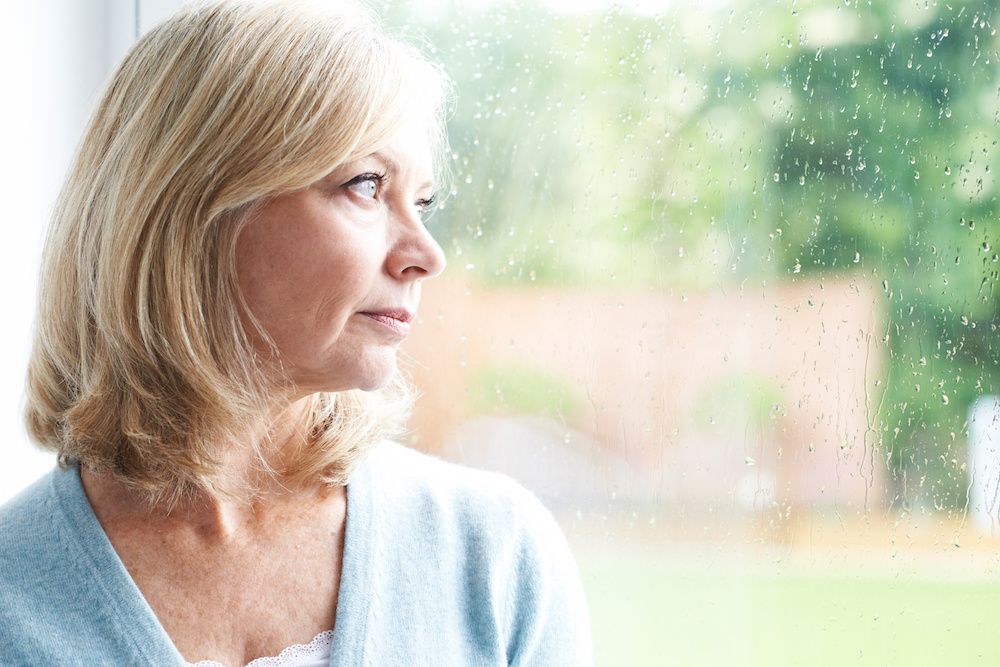Nothing can change the caliber of a conversation—or a relationship—quite like cancer. Like an acquaintance we've been trying to avoid, mortality suddenly appears in the room, and from then on, it never leaves. By choosing to invite the Big C into our social lives, we are always taking a risk—a risk that our friends and partners might not react well, might freeze or run away. For people with cancer and their close friends and families, it's a risk we take every day.
As I've written before in posts concerning work and school, it's never easy to decide just how and when to discuss how cancer is affecting you. Sometimes, the decision is not one we're free to make—old friends will sense the shift or experience it with you, and new friends will find out.
The good news is that most people, at least in the lives of my loved ones, tend to react with more kindness, generosity and understanding than you might expect.
For example, there was Sita, who became close to my brother during the summer following his brain cancer diagnosis. It was difficult to tell, at that time, that there was anything different about Dave: the scars from his first brain surgery had healed, and his friends still made sure to include him in everything they did, including their group trip to the Adirondacks. After splashing around in a canoe together, Dave and Sita became fast friends, and then something more, moving in together later that year. As it turned out, his diagnosis didn't make a difference to her: Sita had survived leukemia as a kid, and the two cancer survivors formed a united front against his disease, sharing herbal supplements and health advice.
Then there was my boyfriend, Rich, whom I've known since journalism school. It was David's diagnosis that brought us together: right before I moved to New York to be closer to Dave during his treatment, Rich was transferred from San Francisco to his firm's NYC office, putting us within driving distance for the first time since college. When we met in the Catskills for a weekend with friends, he confessed he'd had feelings for me for years. But he also made it clear that if we dated, he didn't expect me to choose between caring for David and caring for him.
“This might get rough,” I told him then, anticipating all the flights we'd take between Buffalo and NYC over the next year.
“I know you didn't move home for me,” he said. “I'm just glad we're in the same state.”
My mother, who is divorced, has also been inspired to return to the dating game as a result of her experiences with cancer—both my brother’s in recent years and her own with colon cancer in 2004. “It just goes to show that you never know what's going to happen,” she said. “Life is short, and we've got to get on with it.”
Though not every prospective partner on Match.com will respond enthusiastically when cancer enters the conversation, as my mom points out, she'd prefer a partner who could face down tough times with courage.
This is not to say that the mention of cancer will ever be the ideal icebreaker. (“What happened to your hair?” is a line that still makes David cringe.) It's also no guarantee that the relationships you forge in the heat of crisis will never feel strained, despite their strength. Though David and Sita share the experience of fighting cancer, she favors Eastern treatments, while he dutifully submits to surgeries and chemotherapy. And though my boyfriend is certainly supportive, there are limits to his ability to advise me on matters beyond his own experience.
However, my brother and I both agree that the additional work you put in to form and maintain important relationships, even as you battle cancer, is worth it. As my brother puts it, “Making someone feel understood is probably the most meaningful thing you can do for a person.”
Showing understanding in the face of cancer goes both ways, too: patients can help their friends and families to understand what is happening to them, and friends and families should not be afraid to ask questions in order to figure out just what is needed, or even to say or do the wrong thing. For some suggestions on ways of keeping in touch and giving gifts appropriate for a patient with cancer, check out my last blog post on that topic.
There's a Buddhist teaching about managing all relationships that states: “The skill will one day come. But in the meantime, what matters is your intent.” With the right intentions, you can maintain understanding friendships—and even romantic relationships—even after cancer. In fact, by inviting cancer into the room—by reminding yourself and your friends that life is short and uncertain—you may find that you can more quickly move from petty conflicts and superficial concerns to a more deep and tolerant love.
Resources
Cancer.org: Talking to Friends and Relatives About Cancer
A thoughtful and comprehensive article about how to have (or avoid) having conversations about your cancer with friends, with examples of polite phrases to use in each situation.
Cancer.Net: Supporting a Friend Who Has Cancer
An excellent (and easily printable) article, with do's and dont's for handling a friend's recent diagnosis.
Ryan Rose Weaver is a writer and teacher living in New York. Her younger brother, David, was diagnosed with an anaplastic astrocytoma in February 2011. He is currently being treated at Roswell Park Comprehensive Cancer Center.
Read other posts by Ryan:
Our First Brain Tumor: Early Lessons Learned (September 2012)
Adjusting to the New Normal (November 2012)
Back to Work: Coping With Cancer in the Workplace (January 2013)
Traveling With Cancer (January 2013)
What Should Siblings Do in the Face of Cancer? (February 2013)
Juggling Cancer and Classwork (March 2013)
Long Distance Love (April 2013)
